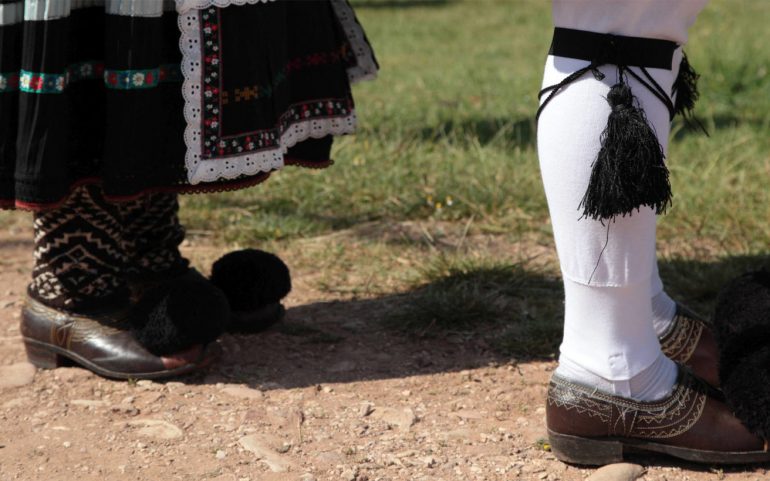Greek cinema has gone through golden eras, but also corresponding ones that were in complete inactivity. He has given the public some great works but also some others that are simply not seen.
The history of Greek cinema dates back to the distant 1914. It was then that a separate and highly… Greek cinematic genre was created which flourished about four decades later.
If you think, however, that in this story everything is rosy, you fall out. The director and producer of the film threw all his money into this unprecedented bet for the Greek data and failed as for the Greeks this particular "sport" was something unknown and they turned their backs on him.
Nevertheless, both he and his film, the now legendary "Golf", went down in history and wrote their own separate chapter in Greek cinema.
The beginning of Greek cinema
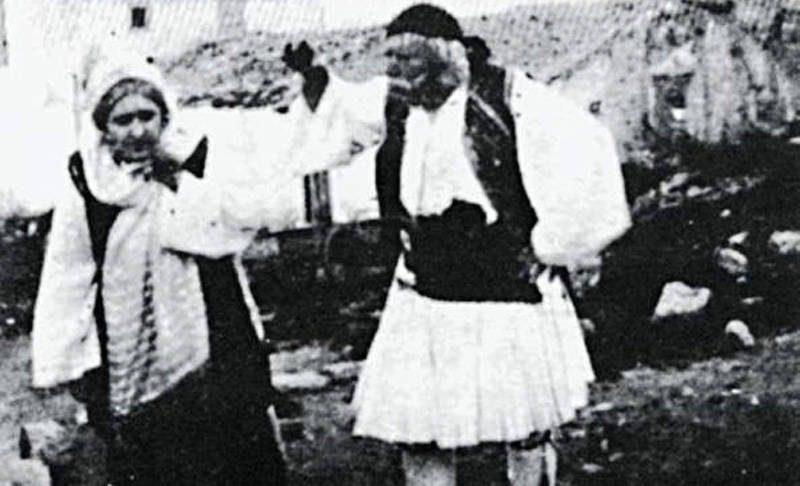
"In the dense deciduous forest of Skaramaga and in the beautiful places near Elefsinos, strange scenes take place for days. Android costumes, beautiful shepherdesses with their festive clothes, shepherds and believers, dance and have fun, at the same time dramatic episodes, murders and fights take place.
What happened? A simple film company gathered almost all the actors, who have not yet started working, and the beautiful folk drama of Mr. Peresiadis "The Golf" is being filmed. The quintessence has been replaced by a natural background and the scenes of the drama unfold in real streams and the few go to a real fountain to get water. The idea is very nice and if the execution is good, Golfo will be one of the most beautiful and original film in the cinema ".
The above -the most brilliant is the truth- report was published in the newspaper "Ethnos" on April 10, 1914 and in essence is the first contact of the Greeks with the domestic cinema. The report announces something unprecedented in the country. A feature film.
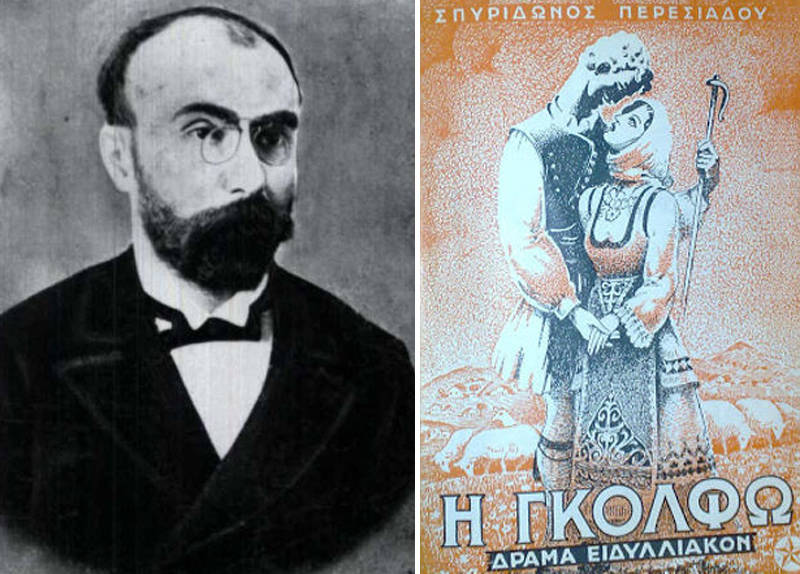
Two days later, representatives of the press will be the first to watch some excerpts from the film based on the bucolic love drama of Spyridon Peresiadis. The next day the newspapers inform that the film will premiere in a few days.
This - for unknown reasons - did not happen. In January 1915, the first screening of the entire film takes place, but for a single viewer. The screening took place in the palace and the only one who saw it was the then King Constantine.
"In His Majesty He was very pleased and even expressed His desire, as well as other films to be filmed", the newspaper "SKRIP" wrote in its report.
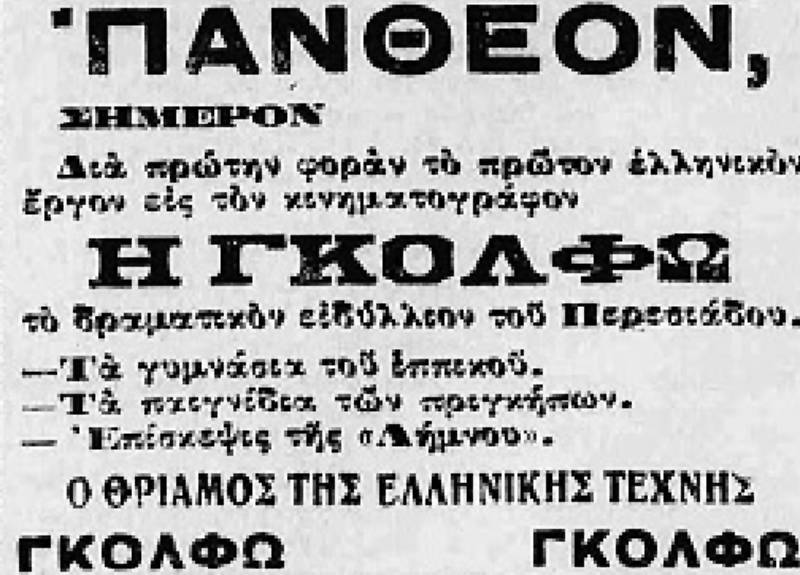
Finally, the coveted premiere for the public took place on January 22, 1915 at the "Pantheon" cinema in Omonia Square (73 Panepistimiou). The press praised the result, although it focused on some problems such as "the clarity of the image due to the wrong lighting", mistakes, however, which were justified "as expected, since it was the first Greek film".
Every beginning and difficult and financial failure… almost certain
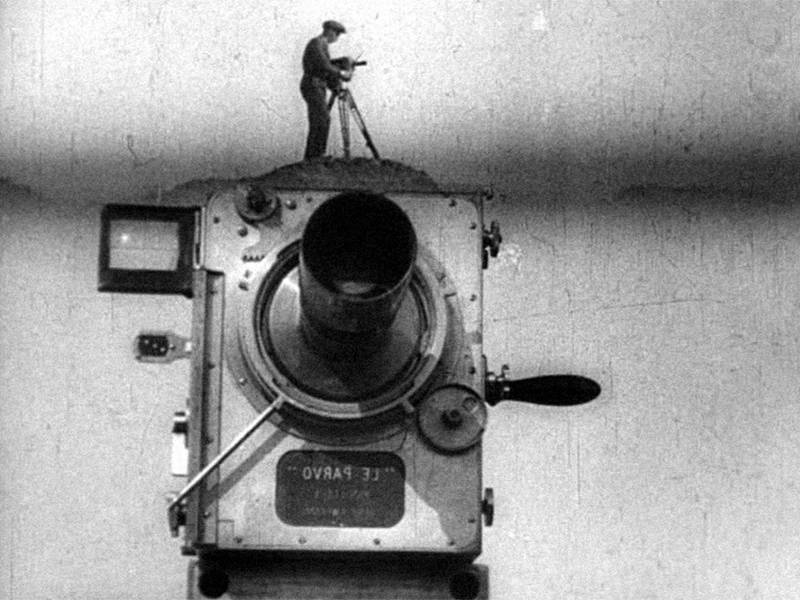
The screening of the film lasted six days. In Athens, the public filled the cinema every night. Then it was shown for three days in "Olympia" of Piraeus. Then, however, he started a tour in the countryside and things were not so rosy there. Initially Patras, in the spring in Thessaloniki, and the following winter in Crete.
There the response of the audience was not so great. In addition, the cost was constantly rising and eventually brought disaster for the director-producer.
According to what has become known, the total cost for "Golfo" amounted to the dizzying amount of 100.000 drachmas for the time. Most likely this was an amount that could hardly be covered no matter how successful the film was. It seems, however, that for the producer Costas Bahatoris, the issue was to create and let it go in a bit.
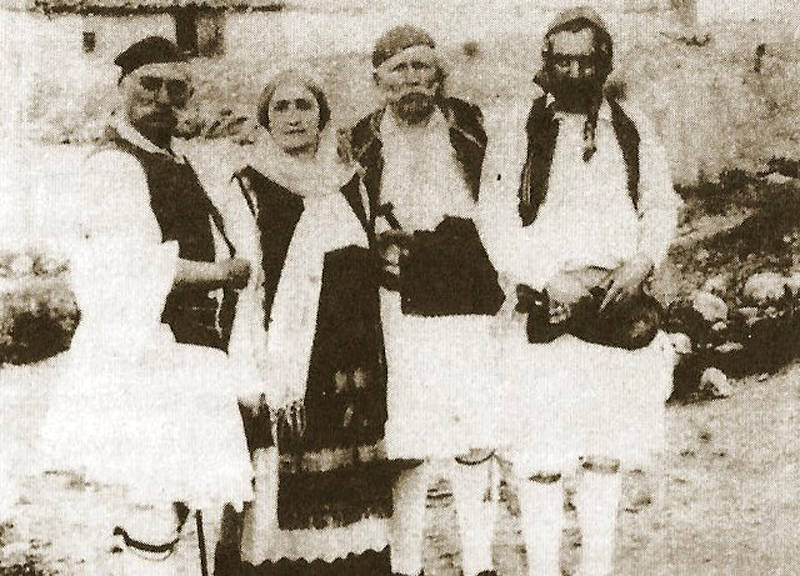
As it turned out, however, even this was extremely difficult and so Bahatoris after the financial failure of the film permanently abandoned his ambitious cinematic plans.
Even so, however, Bahatoris managed to write history as on the one hand he entered the pantheon of Greek cinema as the man who dared to do it first and on the other he created the first film "fustanelas", of an exclusively Greek cinematic genre, which flourished many years later and specifically in the 50s and 60s!
A bucolic love drama
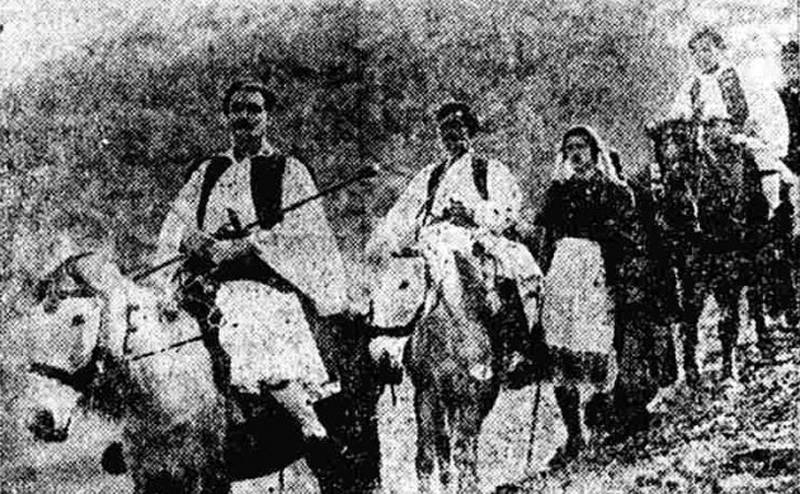
Poor Golfo, an orphaned and extremely beautiful young shepherdess, works as a hotel worker serving the Zisis tselinga. She falls in love with Tassos, despite the close siege of the rich Kitsos. Golfo is not dazzled by Zisis's riches and remains faithful to the vows of love he has exchanged with Tassos, who is not having a good time because he is under pressure from consulates to marry Kitsos' cousin and Tseligas's daughter, Stavroula.
Eventually, however, Tasos proves to be more… prone (to put it politely) in Stavroula's dowry, he succumbs, spoils the engagement he has made in the meantime with Golfo, whom he chases away and finally marries Kitsos' cousin.
Golfo and Tasos's father try in vain to convince him as Tasos is immobile. Eventually the beautiful shepherdess loses her sanity. At first he curses Tassos, but on the eve of his marriage to Stavroula he gives her her wish and leaves. Tasos regrets bitterly for all his behavior and chases his beloved, but it is too late. Golfo has already been medicated and finally leaves her last breath in his hands. Tassos, unable to bear the loss, commits suicide next to her!
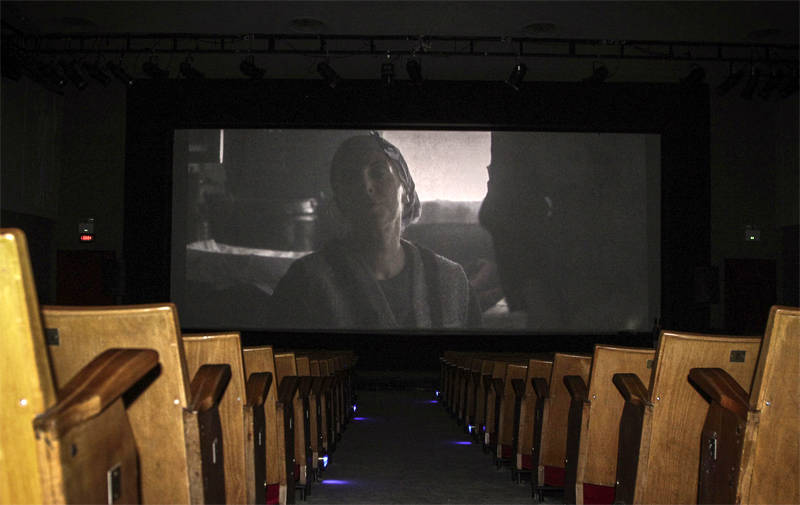
According to legend, the last shot of the film (after the "meager and infamous" funeral of the heroine) showed two crosses in the shadow of two cypress trees in the darkness of night. It was the crosses of Tasos and Golfos that now rested next to each other.
Unfortunately today, to the best of my knowledge, there are no copies of the film. As Bahatoris himself had said, the films in the film were destroyed in the armed clashes of November 1916 between Venizelist and anti-Venizelist forces.
All the shooting of the film, given that studios, as we know them today, did not exist, were done in natural landscapes, carefully selected. Helmos, Elefsina, the forest of Eutaxia in Corinth, the Tower of the Queen are some of them. The adaptation of the play was made by a person who had come especially for this purpose from Europe and it is said, in fact, that at least one screening of the film took place in Paris, although there is no relevant evidence to prove it.
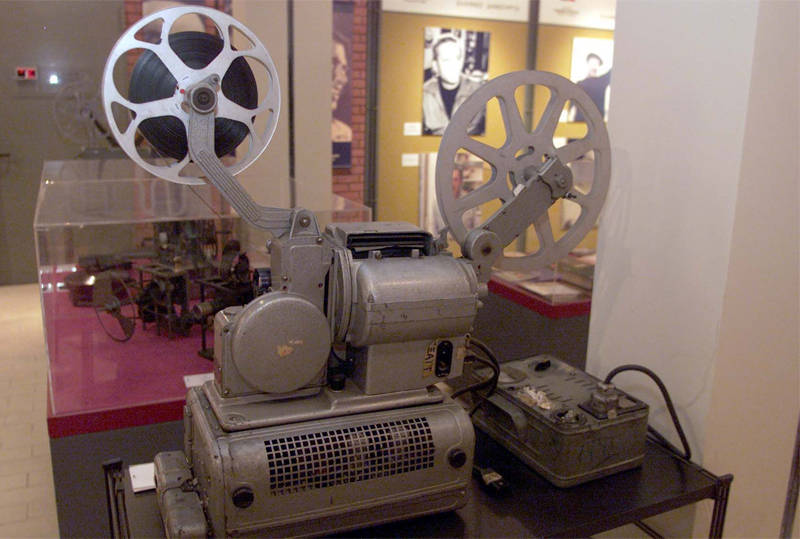
In total, about 100 people showed up at "Golfo". Most of them were well-known actors of that time, members of the so-called "herds", who roamed the countryside and played Peresiadis' play in towns and villages. The role of Golf was played by Virginia Diamanti and the main roles were played by the actors Olympia Damaskou (1878-1951), Zachos Thanos (1884-1946) and Georgios Ploutis.
